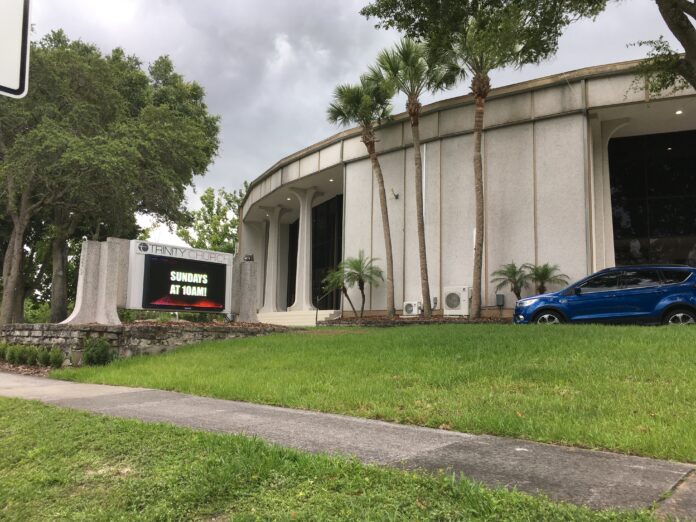
Deltona leaders are talking about requiring all property owners in Deltona — including churches and other tax-exempt organizations — to pay a yearly charge for fire protection.
After expressions of angst, including a call to postpone the discussion, the City Commission on June 6 passed a resolution to take the first steps toward adding the fire fee.
“Under state law, we have to do a notification that we are looking at it,” Acting City Manager John Peters told the commission. “Nothing in this resolution requires the commission to approve such a fee.”
The fee, if ultimately adopted, would be placed on property-tax bills mailed in the fall to each property owner in Deltona. While single-family homes would likely pay a flat fee, the fees for businesses would probably be based on their square footage.
The special assessment for fire protection would reach those in Deltona who benefit from public-safety services but pay little or nothing for them.
Indeed, one of the issues to be studied and debated by city leaders is whether to levy the fire fee on churches. Deltona has more than 30 houses of worship.
Peters said one possibility is “to phase in churches over five years.”
“I’m not opposed to looking at this … let them do the work and come back,” Commissioner Loren King said. “I can tell that at my church, we have had several calls for EMS [emergency medical services]. … I’m not opposed to having churches pay something.”
The churches in Deltona now pay the city’s special assessment for stormwater control, but are exempt from property taxes.
Peters said the special assessment for fire protection would be offset by a reduction in Deltona’s ad valorem tax rate. Deltona has the highest property-tax rate, 7.85 mills, of any local government in the county.
Peters said a fire fee would probably be in the range of $50-$70 for a single-family home. Businesses would likely pay higher charges, based on the size of their buildings, he added.
“Whatever fee we bring to this commission, there would be a corresponding reduction in the taxes,” Peters said.
Commissioner Anita Bradford was skeptical.
“Right now, the way this reads, we’re doing it,” she said.
“To me, this is a tax increase,” Bradford added.
“It does not bind the commission,” City Attorney Marsha Segal-George said, referring to the resolution. “You’re making your city know this is out there. You’re going to get a consultant.”
The flak over his proposal prompted Peters to suggest the City Commission delay further debate on the special assessment until its next regular meeting, on June 20.
Adding she has “some concerns” about the proposed special assessment for fire services, Bradford at one point joined in the call to delay the discussion, but that got no support from her colleagues.
Mayor Heidi Herzberg said the property owners who now avoid paying for fire protection would become responsible for a part of the cost. By approving the resolution calling for a study of the fire fee, Herzberg stressed the commission was not deciding to impose the charge.
“This is just the intent to do this,” she said. “Every person that owns a parcel in the city would get this.”
Before the City Commission actually votes — up or down — on any proposed fire fee, Herzberg said, any ordinance imposing the assessment would be advertised, and each property owner in Deltona would receive a letter from City Hall describing the proposed special assessment. The letter would also inform property owners about the time, date and location of the public hearing on the matter.
Any such additional special assessment would not come this year.
“This will not go into effect with the next fiscal year. It will be in the ’23-’24 fiscal year,” Peters noted.
The fiscal year of Florida’s cities and counties begins Oct. 1 and ends the following Sept. 30.
The City Commission voted 4-2 in favor of the resolution authorizing a study of a fire-protection assessment for Deltona.
Mayor Herzberg, Vice Mayor Maritza Avila-Vazquez and Commissioners King and Victor Ramos voted in favor. Bradford and Commissioner David Sosa dissented. Commissioner Dana McCool was absent.
In other action June 6, the City Commission approved an ordinance setting a six-month moratorium on new applications for land-use changes and rezonings for most residential planned-unit developments (RPUDs) in Deltona.
The only RPUD proposals that may be processed for approval while the moratorium is in effect would be small-scale subdivisions with 20 or fewer homes, or proposals with sizable percentages of affordable housing.
The Deltona City Commission will vote again on the moratorium at a required second reading on Monday, June 20.
If the moratorium is approved, it would be in effect July 1-Jan. 1, which city officials said should give Deltona planners time to review the city’s land-development regulations and suggest any needed changes.